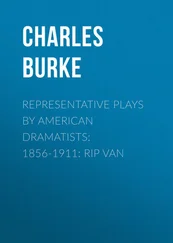Stuart Walker - More Portmanteau Plays
Здесь есть возможность читать онлайн «Stuart Walker - More Portmanteau Plays» — ознакомительный отрывок электронной книги совершенно бесплатно, а после прочтения отрывка купить полную версию. В некоторых случаях можно слушать аудио, скачать через торрент в формате fb2 и присутствует краткое содержание. Жанр: foreign_dramaturgy, literature_20, Драматургия, foreign_antique, foreign_prose, на английском языке. Описание произведения, (предисловие) а так же отзывы посетителей доступны на портале библиотеки ЛибКат.
- Название:More Portmanteau Plays
- Автор:
- Жанр:
- Год:неизвестен
- ISBN:нет данных
- Рейтинг книги:5 / 5. Голосов: 1
-
Избранное:Добавить в избранное
- Отзывы:
-
Ваша оценка:
- 100
- 1
- 2
- 3
- 4
- 5
More Portmanteau Plays: краткое содержание, описание и аннотация
Предлагаем к чтению аннотацию, описание, краткое содержание или предисловие (зависит от того, что написал сам автор книги «More Portmanteau Plays»). Если вы не нашли необходимую информацию о книге — напишите в комментариях, мы постараемся отыскать её.
More Portmanteau Plays — читать онлайн ознакомительный отрывок
Ниже представлен текст книги, разбитый по страницам. Система сохранения места последней прочитанной страницы, позволяет с удобством читать онлайн бесплатно книгу «More Portmanteau Plays», без необходимости каждый раз заново искать на чём Вы остановились. Поставьте закладку, и сможете в любой момент перейти на страницу, на которой закончили чтение.
Интервал:
Закладка:
Stuart Walker
More Portmanteau Plays
INTRODUCTION
During the period which has elapsed between the publication of Portmanteau Plays , and that of the present volume our country entered upon the greatest war in history, and emerged victorious. It is far too early to estimate what effect that war has had or may have upon all art in general, and upon the dramatic and theatric arts in particular, but there is every indication that the curtain is about to rise on the great romantic revival which we have watched and waited for, and of which Stuart Walker has been one of the major prophets.
During the actual period of the war many of the creative and interpretative artists of the theater were engaged either directly in army work or in one of its auxiliary branches. It is amusing to recall that the present writer met Schuyler Ladd serving as Mess Sergeant for a Base Hospital in France, Alexander Wollcott, late dramatic critic of the New York Times , attached to the Stars and Stripes in Paris, and Douglas Stuart, the London producer, in an English hospital at Etretat, the while he himself was serving as an enlisted man on the staff of the same hospital. These are minor instances, but when they have been multiplied several hundred times one begins to see how closely the actor, the critic, and the producer were involved in the struggle. Again the problem of providing proper entertainment for the troops was, and still is, a serious one. In the great number of cases it seems highly probable that the entertainment along such lines done by the men themselves was far more effective than that provided by outside organizations. More than once, however, it appeared to the writer that here was a field especially suited to the Portmanteau Theater and to its repertory. The question of transportation, always a crucial point with such a venture, was no more difficult than that presented by many companies already in the field, and doing immensely inferior work. My return to America put me in possession of the facts of the matter, and without desiring in any way to cast blame, much less to indict, or to emphasize unduly a relatively unimportant point, it seems only fitting that there should be included in this record the reasons for what has seemed to many of us a lost opportunity. They are at least much more brief than the apologia which precedes them.
The Portmanteau Theater , its repertory of forty-eight plays, and its trained company, was offered for war purposes under the following conditions: no royalty was to be paid for any of the plays, no salary was to be paid Mr. Walker; the company was to go wherever sent, whether in or out of shell fire, in France or in England; the only stipulation being that the members of the company should be remunerated at the same rate paid an enlisted man in the United States army, and that the principal members should receive the pay of subalterns. On the whole an arrangement so generous that it is almost absurd. To this offer the Y. M. C. A. turned a deaf ear. Their attention was concentrated on vaudeville at the moment, and with one hand they covered their eyes while with the other they clutched their purse strings. The War Camp Community Service could see no way in which the Theater could function for the men either at home or abroad. The Portmanteau was, in a word, too "high-brow" a venture for them. The reader is referred to the Appendix of this volume showing the repertory in use at that time. Another official contented himself with the statement that the problem of transportation involved rendered the project impracticable. The matter is too lengthy to discuss here, but the writer, who was able to observe the situation at first hand, knows this to be an error. The navy then asked for plans and estimates so that a number of Portmanteau Theaters might be constructed aboard the ships. Mr. Walker offered to put all his patents at the complete disposal of the Navy Department, and himself was ready to draw plans and make suggestions. The navy approved the idea, and with sublime assurance requested Mr. Walker to proceed with the work of construction—at his own expense. It was impossible; the money could not be afforded, and the venture was abandoned. It is therefore very evident that there was an opportunity, and that that opportunity was lost; but it was not the Portmanteau which lost it. At any rate we are left free to take up the history of Mr. Walker's theater and his plays at the point where we left off in the first book of the series.
The close of the highly successful season at the Princess Theater in New York, the winter of 1915-1916, was followed by twelve weeks on the road, three of which were spent in Chicago, and then by thirteen weeks in Indianapolis. It was in this last city that the production of the adaptation of Booth Tarkington's book, "Seventeen," changed all plans by its instant popularity. On the way East, a stop was made in Chicago, and before that city had time to do much more than voice its enthusiasm, the company left for New York. During the fall of 1917 Seventeen was played regularly, with the addition of some special performances of the repertory. Seventeen was played in New York for two hundred and fifty-eight performances (Chicago had already had one hundred), and the special performances of The Book of Job were renewed in the spring. It was during the next fall, that of 1918, that a second Seventeen company was sent out on the road. That company is still out, the total playing time for the work since its production being (April, 1919) just one hundred and four weeks. The next summer, 1918, included a repertory season of thirteen weeks, again at Indianapolis, and four in Cincinnati, while the following winter, just past, chimed ten weeks of repertory at the Punch and Judy Theater in New York. To sum up in brief then—Mr. Walker has, beginning in the spring of 1916 and ending in the spring of 1919, played seventy-six weeks of repertory, in which he has produced forty-eight plays. This does not include the Seventeen run which, as I have said, totals one hundred and four weeks to date. It is safe to claim that this represents as successful repertory work as has been done in the United States so far. We shall, however, return to that presently.
In the fall of 1917, so important to the Portmanteau company, a change of management was instituted, by which the following staff came into control: Stage Director—Gregory Kelly: Stage Manager—Morgan Farley: Musical Director—Michel Bernstein: Manager—Harold Holstein: Press Representative—Alta May Coleman: Treasurer—Walter Herzbrun. The changes were excellent, and were thoroughly justified in their results. An arrangement was made with the Shuberts, whereby booking was greatly facilitated, and with its structure thus reinforced, the Theater was in an excellent position to "carry on."
It may be remembered by those who read the first book of the Portmanteau Series that in my introduction I placed the greater portion of my emphasis on the theatrical side; that is, the Portmanteau as a portable theater rather than as a repertory company. It is my intention here to reverse the process, and this for two reasons. First: Mr. Walker has in the last two years by no means confined himself to the Portmanteau stage. The recent run at the Punch and Judy Theater in New York was upon a full size stage, and this was not at all an exception. The Portmanteau was, and is, an idea, but that idea has no very definite connection with repertory as such. There is no longer the need, in this particular instance, that there once was, for the invariable use of the Portmanteau , except as convenience requires. At the very beginning, when the company often played for private persons, the portable stage was indispensable. But so thoroughly did the
Читать дальшеИнтервал:
Закладка:
Похожие книги на «More Portmanteau Plays»
Представляем Вашему вниманию похожие книги на «More Portmanteau Plays» списком для выбора. Мы отобрали схожую по названию и смыслу литературу в надежде предоставить читателям больше вариантов отыскать новые, интересные, ещё непрочитанные произведения.
Обсуждение, отзывы о книге «More Portmanteau Plays» и просто собственные мнения читателей. Оставьте ваши комментарии, напишите, что Вы думаете о произведении, его смысле или главных героях. Укажите что конкретно понравилось, а что нет, и почему Вы так считаете.












